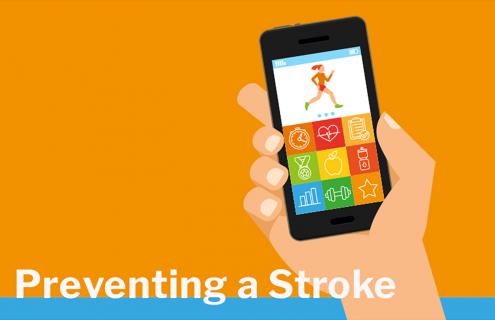
According to new research, 90% of strokes can be prevented by addressing these risk factors:
- Control high blood pressure. The scientists agree that lowering your blood pressure is the most effective way to reduce your chance of stroke.
- Increase physical activity. Exercise can lower your blood pressure and improve your overall heart health. Aim for 150 minutes of moderate activity a week.
- Lower lipids. Reducing the amount of saturated fat, trans fat and cholesterol in your diet can help prevent plaque from forming in your arteries.
- Eat a healthy diet. Include lots of fruits and vegetables, and limit sodium by avoiding prepared and packaged foods.
- Watch your weight. Being overweight contributes to other stroke risk factors. Losing as little as 10 pounds can lower your blood pressure, reducing your risk.
- Quit smoking. Smoking raises your own risk of stroke, and others’ risk through secondhand smoke.
- Address heart issues. Some types of heart disease can lead to blood clots in the heart. Clots can break free from the heart and block vessels to the brain.
- Check stress. Find healthy ways to ease stress, such as practicing relaxation techniques, getting enough sleep, being active, reaching out to others for help, laughing more and worrying less.
- Limit alcohol use. Heavy drinking can increase your risk for conditions such as high blood pressure, control (an irregular heartbeat) and liver disease, all of which may lead to stroke. The American Heart Association recommends one drink a day for women and one to two drinks a day for men.
- Manage diabetes. Diabetes can lead to serious health complications, if left untreated. That’s why it’s important to get your blood sugar tested and keep it in check through diet, exercise, weight control and medication.
Your provider is your partner in good health, so schedule an appointment to learn how to take charge of your stroke risk factors.